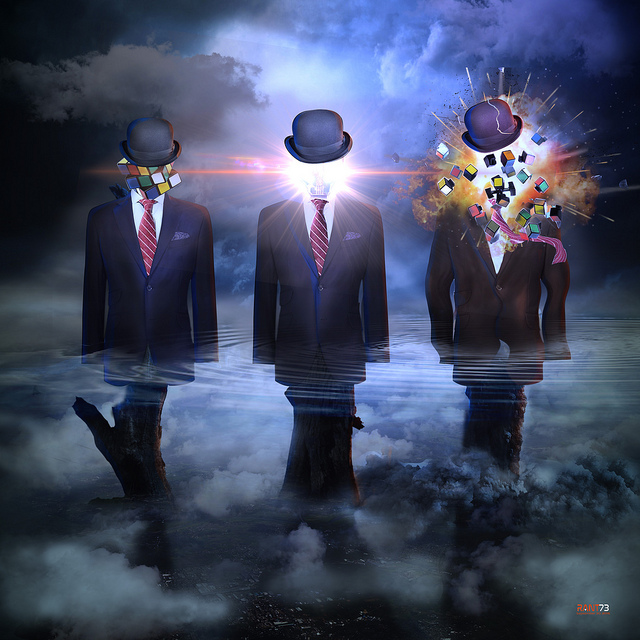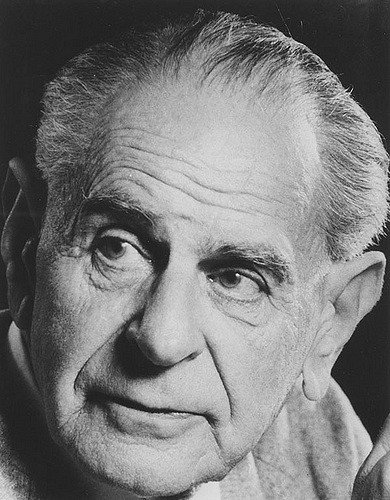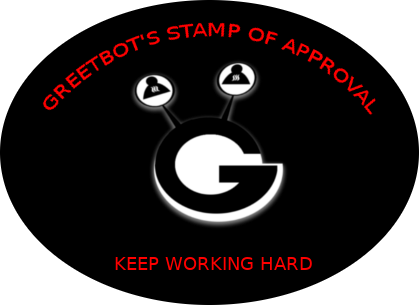Tolerating the end of tolerance
Karl Popper's 'Paradox of Tolerance' and the World We Know Today
( )
)
From time to time, I come across something on my social media feed which brings me back to 2nd year political theory class, which was taught by a tough, pro-Palestinian, anti-American professor who detested the hegemonic political order of our time. George W. Bush was in the White House back then, and the war in Iraq had been raging on for a couple of years. Canada had just elected a minority Conservative government for the first time since 1979. It was an interesting time to be in the classroom.
Among the required readings for that course was an article written by Michael Walzer, famed for his masterpiece 1977 work “Just and Unjust Wars” which I had subsequently read, in which he asks about whether a community should put up with intolerance. The question seemed so basic, but it was only as I began to examine the consequences of each answer I was trying to formulate in my head that the question became a maze of perplexity. In truth, I thought I had been on to something, and I was disappointed to discover the ‘paradox of tolerance’ had already been theorized and written about many years before my parents were born.
The philosopher who coined the term in 1945 was Karl Popper. He theorized that absolute tolerance in society will ultimately lead to the death of tolerance as the intolerant become dominant. In Popper’s own words:
( )
)
Less well known is the paradox of tolerance: Unlimited tolerance must lead to the disappearance of tolerance. If we extend unlimited tolerance even to those who are intolerant, if we are not prepared to defend a tolerant society against the onslaught of the intolerant, then the tolerant will be destroyed, and tolerance with them.
The relevance of this nugget of political philosophy speaks precisely to the theme of the last couple of weeks, playing out first in the United States and spilling over into Canada. In the United States, it has been brewing for years, but never before has a sitting American president been so willing and successful at inflaming social tensions — nor has one ever been so welcoming of intolerant views that past generations of Americans have fought and died to eradicate. It would be comical thriller in any fictional story medium, but in real life, the consequences of President Trump’s words send shockwaves throughout the globe, providing intolerant groups like the Ku Klux Klan, neo-Nazi factions and the extremists (of any religious affiliation) a sense of legitimacy in addition to the megaphone that comes with being the incumbent tenant at the White House.
The events of Charlottesville, Virginia, as tragic as they were, is the violent manifestation of unlimited tolerance — the consequences plaguing a society when its intolerant elements are permitted to co-exist in an otherwise tolerant society. The takeaway the world needs to conclude from Charlottesville isn’t the validity of any stance vis-a-vis monuments and statues (which is an entirely different debate) but rather that the right to free expression is only preserved when society decides to root out intolerance. This is, unfortunately, not the debate we are now engaged in, neither in the United States nor in Canada.
Political discourse in Canada is fragmented on a number of different fronts, but they all have roots in the broader theme playing out south of the border. Journalists are engaged in a discussion over Ezra Levant and his right-wing outlet, Rebel Media, as to whether they should be allowed to coexist in the Canadian media landscape. Other Canadians, particularly in border communities in Quebec and Eastern Ontario are entrenched into a discussion about migrants crossing into Canada illegally from our undefended border with the United States, the majority of whom are asylum-seekers from Haiti. Vancouver, Quebec City and Montreal have had copycat protests of the type seen in Charlottesville, which seemed to pit opposing groups within the same event protesting their respective positions. There is now a push in Ontario to have Canada’s first prime minister’s name removed from public schools in the province, sparking an intense debate pitting reconciliation with Indigenous peoples and preserving Canadian history, both the good and the bad.
While each is a perfectly legitimate debate, I contend that it matters little given that the answers to these very questions lie in the asking of a much broader social query. I remind you that we now live in a world where the most powerful of its citizens spews hate, encourages violence against political opponents and attacks critical media by labelling them as “fake news”. There is a much broader question that free societies must now answer, which will set the direction for a number of other issues facing our political decision-makers.
Where does society draw the line between legitimate opposition to a particular issue and fear-based hate and intolerance? To what degree is society willing to defend the former against the latter?
On the Canadian migrant issue, for example, it is one thing to outline a position against granting these folks asylum on the basis that laws must be respected or on the government’s capacity to welcome newcomers. It is something else entirely to suggest that these people ought to be returned to Haiti simply because of the colour of their skin. The first argument considers the rule of law and the needs of the existing population — the latter is simply racist.
The most recent US presidential election produced a result that was unexpected, but the consequences of which were very predictable. Donald Trump’s campaign gave political watchers all over the world a glimpse of what he would be as president, and his election legitimized his intolerance. Whether it was “punch him in the face”, “grab ’em by the pussy”, the mocking of a disabled reporter, or the many, many other instances of Trump putting his intolerance on display for political advantage, his ascension to the presidency breathed new life into those groups who were otherwise cast out to the fringes of society. They have now graduated to become a part of the mainstream minority that appears to be growing.
Americans travelling in Germany performing the Hitler salute… Soldiers of Odin in Canada intimidating pro-immigration demonstrations… the National Rifle Association threatening media outlets with a video that ends with the words “We’re coming for you”… a 32-year old woman peacefully protesting in Charlottesville, run down and killed by a white nationalist counter-protester. The globe is being infested with agents of intolerance, and the leader of the free world speaks with a straight-face saying that there are “bad people on both sides” of this divide.
The US isn’t exactly an evolved society, particularly in southern states. This is easily seen when looking at legal proceedings that are covered extensively by the media. The trial of George Zimmerman in Florida, for instance, is one such example of institutional racism which allowed a murderer to escape justice. The National Rifle Association is another such example, which advocated for a nonsensical solution in the aftermath of the Sandy Hook Elementary School shooting in Connecticut and said absolutely nothing about the 2016 murder of Philando Castile, a black American.
Trump’s intolerance was on display well before he announced his run for the White House. The “birther” issue, for example, was something that dogged President Obama for almost two years, ending with him proving something that was already well-known: that he had indeed been born in the United States. In the Republican primaries, Trump could have easily used that same birther argument against his political rival, Canadian-born Texas Senator Ted Cruz, but did not dwell on it at all. The difference: Obama was black, Cruz was not.
Intolerance and ideology are the infectious agents that are attacking fundamental truths and science-backed facts. While this has reached epidemic proportions in the United States, other free societies, like Canada, are not immune from the global spread of irrational hate.
In Canada, it is easy to be distracted by the issues playing out day-to-day competing for our attention. Whether it’s the renegotiation of NAFTA, reconciliation with Indigenous peoples, the migrant issue or Justin Trudeau’s latest shirtless selfie photobombing a beach wedding, these simultaneous conversations are making it difficult for Canadians, and by extension, their elected political representatives, to zero-in on the matter that is at the heart of all of the anxiety many are feeling in society…
Should society collectively grant some of its elements the absolute right to be intolerant? Should the intolerant be shielded by constitutionally-prescribed legal protections to spread a message of irrational hate?
This, along with the crisis of climate change, are the focal questions facing humanity today. Answering the above requires identifying all of the related questions that naturally follow. What to do with the intolerant elements of society? How to protect free speech rooted in legitimate, fact-based opposition to a particular issue or proposal?
This shouldn’t be an exercise between groups, but a collective social experience. What the people of the world need today is a global enlightenment, not a vigorous debate between various ideologies. We should not be segregated into left versus right, liberal versus conservative, East versus West or Christian versus Muslim. A new world order can only begin when everyone comes to terms with and correctly identifies the fundamental differences between freedom for everyone and a culture of hate; between fact and fake; between what is right and what is wrong.
Statues are important; names on public buildings are important; but they are also debates which require a less-important understanding of historical wrongs. Let us correct those historical wrongs by first addressing the present infestation plaguing us. Perhaps the solution to today’s issues will lead us to a point where a genuine, respectful discussion can take place to redress historical injustices.
For too long, those more tolerant elements in society have taken the approach that fact-based, logical argument would win the day. This occurs in the form of public debate and satirical commentary. The effectiveness of both have now been tested by an opposition no longer constrained by scientific facts or by a desire to present the truth. Need look no further than President Trump’s speech to the CIA during his first full-day as president, when he said it was not raining during his inauguration. One cannot reason with someone who takes liberties with the truth, particularly with something so unquestionable as the day’s weather.
Karl Popper foresaw these very circumstances in his writing on the paradox of tolerance, which, if examined through the lens of the present, would have strongly condemned the world in which Donald Trump wields the megaphone of the American presidency to tell his own absurd version of reality. It is no longer acceptable for the tolerant in society to co-exist with groups such as the KKK, the neo-Nazis and war profiteers. Those preaching a non-violent means of resistance have cited Popper in their campaigns, but often conveniently omit the full argument Karl Popper makes when examining the paradox of tolerance, the rest of which I present to you as this article’s closing thought:
In this formulation, I do not imply, for instance, that we should always suppress the utterance of intolerant philosophies; as long as we can counter them by rational argument and keep them in check by public opinion, suppression would certainly be most unwise. But we should claim the right to suppress them if necessary even by force; for it may easily turn out that they are not prepared to meet us on the level of rational argument, but begin by denouncing all argument; they may forbid their followers to listen to rational argument, because it is deceptive, and teach them to answer arguments by the use of their fists or pistols. We should therefore claim, in the name of tolerance, the right not to tolerate the intolerant. We should claim that any movement preaching intolerance places itself outside the law, and we should consider incitement to intolerance and persecution as criminal, in the same way as we should consider incitement to murder, or to kidnapping, or to the revival of the slave trade, as criminal.
Photo Credit - Title Image (Rant73, via Flickr)
Photo Credit - Karl Popper (London School of Economics Library, via Flickr)
The world is getting worse by the day with President Trump's administration. For example, recognizing Jerusalem as the capital of Israel.
The Jerusalem declaration was rather puzzling if you ask me. Within hours of declaring Jerusalem Israel's capital, the president signed a long-standing order telling State Department officials to delay plans to move the embassy from Tel Aviv. It's an order that has been signed by every president since Clinton every six months.
This is a move meant to simply inflame tensions in the most volatile region in the world, and comes at no political cost to him in a non-election year. That said, Trump is almost certainly going to lose if he contests for re-election in 2020 so I think the White House mindset is likely to be "why not go all-out while we can".
We need to move toward a society that says what they truly think and encourage people to call-out those who have a mindset dominated by hate. Fear is one thing, but irrational hate is quite another. We need to root that out if we are to truly move forward as a global society.
This is a very substantive content! Looking forward to seeing more posts like this in Steem. It's thoroughly written so I hope you put up more of philosophy stuff around here.
Thank you! I appreciate the feedback. I will certainly put up more stuff like this in the weeks and months to come.
Resteemed by @resteembot! Good Luck!
The resteem was payed by @greetbot
Curious?
The @resteembot's introduction post
Get more from @resteembot with the #resteembotsentme initiative
Check out the great posts I already resteemed.
Wow thank you! Appreciate the help! Will check them out for sure.
Hi. I am @greetbot - a bot that uses AI to look for newbies who write good content.

I found your post and decided to help you get noticed.
I will pay a resteeming service to resteem your post,
and I'll give you my stamp of automatic approval!